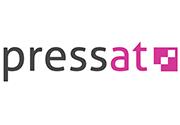
DSM Foundation Responds To Government Moves To Reclassify Ketamine As A Class A Substance
DSM Foundation Director, Founder and Dan's mum Fiona Spargo-Mabbs said:“Ketamine is the most commonly mentioned substance by 15-18 year olds after those more widely available to young people – alcohol, nicotine in various forms and cannabis - when responding to the anonymous survey we send to students before we plan and deliver a drugs education workshop to them. Around one in five (18 per cent) named ketamine in response to the question 'Which are the main substances people in your year group use, if they do?' ahead of other substances such as nitrous oxide, cocaine or MDMA, and in some schools we work with this is significantly higher. This overall figure – gathered from over 2,100 young people in the autumn term – shows that ketamine is a drug that a significant number are aware of and feel is around for them and their peers, and so we welcome experts looking into it in depth.
“Our data shows how important it is that young people have access to relevant, up to date, and non-judgemental drug education about drugs, including ketamine, so they are able to develop the skills needed to navigate situations many of them find themselves in. It's so important they're able to make informed and empowered decisions, whether for themselves or to help their friends, as we want every young person to be able to get home safely, and to keep themselves safe from harm.”
The decision of the Policing Minister Dame Diana Johnson to request that the Advisory Council on the Misuse of Drugs (ACMD) make recommendations about ketamine stems from an increase in the prevalence of the drug in the UK in recent years. It was also prompted by concerns raised by Senior Coroner Alison Mutch following her investigation into the ketamine-related death of James Boland in October 2024; it appeared that the Class B drug ketamine had been chosen over Class A drugs because it was perceived as having less risk, with tragic consequences. In the year ending March 2024, in England and Wales nearly 270,000 people aged 16 to 59 years reported using it in the previous 12 months, putting them at risk of serious health problems including potentially irreversible damage to the bladder and kidneys.
Ketamine is also one of the drugs most commonly detected in spiking incidents, and it has been cited as an ingredient in“pink cocaine”, a dangerous cocktail of drugs that was recently in the headlines following its implication in the death of One Direction singer Liam Payne.
The DSM Foundation has a factsheet on ketamine for young people at and a Quick Guide for the adults in their lives (such as parents, caregivers and school staff) at >
Information for editors:
The DSM Foundation is a drug education charity established in 2014 following the death of 16 year old Daniel Spargo-Mabbs from an accidental overdose of ecstasy. His family felt that he simply hadn't known enough to be able to make decisions that would keep him safe, and realized there was a huge gap in the resources and support available to schools, so set up the charity in order to spare other families going through what they had experienced.
The aim of the DSM Foundation is to provide young people with relevant, age-appropriate, up to date and evidence-based information about drugs so they develop the skills to make choices that will keep themselves and their friends as safe as possible. To this end, the charity is currently working in almost 750 schools, colleges and community organisations with children and young people, and also provides workshops for parents and caregivers, and training for school and college staff – the two groups shown by NHS survey data as the most likely sources of information about drugs and alcohol sought out by 11-15 year olds. Educational settings are also able to access“I Love You Mum, I Promise I Won't Die”, a verbatim play by Mark Wheeller that was commissioned by the charity to tell Dan's story in the words of his family and friends, through studying the work itself (sometimes due to it being a GCSE Drama set text on the Eduqas syllabus), or booking a Theatre in Education performance. Schools and colleges can also download age-appropriate, relevant, up to date and evidence-based drugs education lesson resources free of charge from the DSM Foundation website for delivery by teachers through PSHE/PSE provision.
For more information about the DSM Foundation, go to .
Media enquiries about this press release or the work of the DSM Foundation should be sent to ... .

Legal Disclaimer:
MENAFN provides the
information “as is” without warranty of any kind. We do not accept
any responsibility or liability for the accuracy, content, images,
videos, licenses, completeness, legality, or reliability of the information
contained in this article. If you have any complaints or copyright
issues related to this article, kindly contact the provider above.

















Comments
No comment